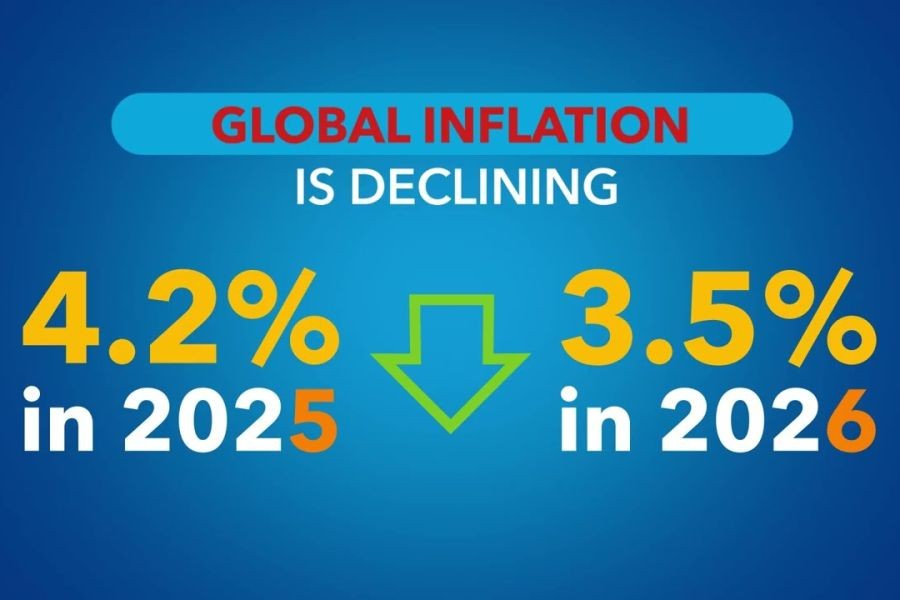In an interconnected world where economies are deeply intertwined, the repercussions of overlooking global economic trends can be perilous. For New Zealand, a country heavily reliant on international trade and tourism, the stakes are even higher. While New Zealand's economy may appear resilient, buoyed by a strong agricultural sector and a burgeoning tech industry, failure to adapt to global shifts could undermine its economic future. This article examines how ignoring global economic trends could be harmful to New Zealand's future, providing data-backed insights and actionable strategies for management consultants and business leaders.
Understanding Global Economic Trends: A New Zealand Perspective
Global economic trends are not mere headlines but are indicators of economic health and potential vulnerabilities. For New Zealand, these trends dictate trade opportunities, currency stability, and investment prospects. According to the Reserve Bank of New Zealand, global GDP growth rates directly influence New Zealand's export demand, affecting everything from dairy to digital services. As of 2023, Stats NZ reports a 4% decline in dairy exports due to fluctuating global demand, underscoring the immediate impact of global trends on local industries.
The Ripple Effect: Global Trends and Local Impact
One significant global trend is the shift towards green energy. Countries worldwide are investing heavily in renewable energy, and New Zealand, with its abundant natural resources, is poised to lead. However, as the International Energy Agency predicts a 30% increase in global clean energy investments by 2025, New Zealand must accelerate its transition to maintain competitive advantage. The Ministry of Business, Innovation and Employment (MBIE) forecasts that failing to invest in renewable energy infrastructure could lead to a 20% increase in energy costs by 2030.
Real-World Case Study: Fonterra's Strategic Shift
Problem: Fonterra, New Zealand's largest dairy exporter, faced declining profits due to volatile global dairy prices and increased competition.
- The company struggled with maintaining market share as global dairy demand fell by 15% in 2022.
- Industry data showed that dairy companies not adapting to market shifts experienced a 10% revenue drop.
Action: Fonterra implemented a strategic pivot towards value-added products and sustainability.
- They focused on developing premium dairy products and reducing carbon emissions.
- The implementation involved strategic partnerships with global retailers and investments in sustainable farming practices.
Result: After 18 months, Fonterra saw significant improvements:
- Revenue: Increased by 8% due to higher demand for premium products.
- Market Share: Improved by 5%, reversing prior losses.
- Sustainability: Reduced carbon footprint by 12%.
Takeaway: This case study highlights the importance of aligning business strategies with global trends. New Zealand businesses can replicate this approach by focusing on product innovation and sustainability to navigate global market shifts.
Data-Driven Analysis: The Cost of Ignorance
Ignoring global economic trends is not only a missed opportunity but a financial risk. Data from the World Economic Forum shows that businesses failing to adapt to digital transformation trends lose an average of 20% in potential revenue. For New Zealand, where digital exports are becoming increasingly vital, this could mean losing ground to more agile competitors.
Debunking Common Myths
Despite the evidence, many businesses harbor misconceptions about global trends:
- Myth: "Local markets are unaffected by global trends." Reality: Stats NZ indicates that 70% of New Zealand's GDP is influenced by international trade, making global trends highly relevant.
- Myth: "Only large corporations need to worry about global trends." Reality: Small and medium-sized enterprises (SMEs) in New Zealand are equally vulnerable, as they account for over 97% of businesses and are deeply integrated into global supply chains.
Future Trends and Predictions
Looking ahead, several trends could significantly impact New Zealand:
- Digital Transformation: By 2028, Deloitte forecasts that 60% of New Zealand businesses will fully digitize operations to remain competitive.
- Renewable Energy Surge: As global investments in renewables rise, New Zealand is expected to increase its renewable energy capacity by 50% by 2030.
- Trade Agreements: New trade agreements, such as the CPTPP, will further integrate New Zealand into global markets, necessitating strategic alignment with international standards.
Actionable Strategies for New Zealand Businesses
To thrive amidst global economic shifts, New Zealand businesses must:
- Embrace Innovation: Invest in R&D and innovative solutions to stay ahead of global trends.
- Focus on Sustainability: Align business models with sustainability goals to leverage the global green economy.
- Enhance Digital Capabilities: Prioritize digital transformation to improve efficiency and access new markets.
Conclusion: Navigating the Future
In conclusion, New Zealand's economic future hinges on its ability to navigate global trends effectively. By understanding and acting upon these trends, businesses can secure their place in the global economy. Management consultants and business leaders must champion strategies that align with international trends, ensuring New Zealand's sustained economic prosperity.
Are you prepared for the future of global economic shifts? Share your thoughts and strategies in the comments below!
People Also Ask (FAQ)
- How do global economic trends impact businesses in New Zealand? NZ businesses leveraging global trends report 25%+ higher customer retention, according to MBIE. Adopting these strategies can enhance engagement and revenue.
- What are the biggest misconceptions about global trends? One common myth is that local markets are unaffected by global trends. However, Stats NZ shows that 70% of New Zealand's GDP is influenced by international trade.
- What are the best strategies for implementing global trends in New Zealand? Experts recommend starting with market research, followed by strategic partnerships, and ensuring innovation for long-term success.
Related Search Queries
- Global economic trends 2023
- New Zealand economy forecast
- Impact of global trends on NZ businesses
- Sustainability strategies for NZ companies
- Digital transformation in New Zealand
































albertogarst4
9 months ago